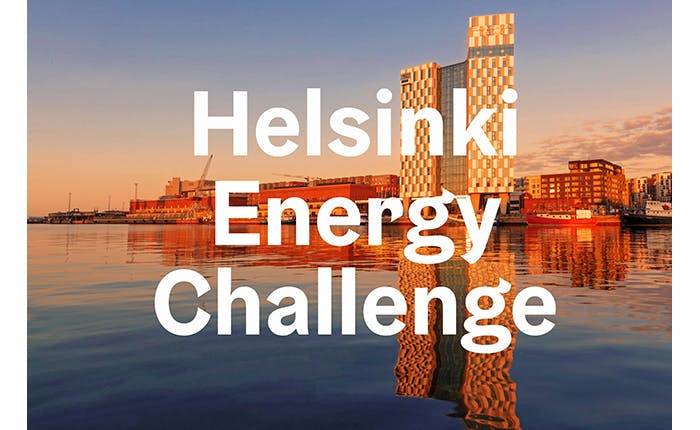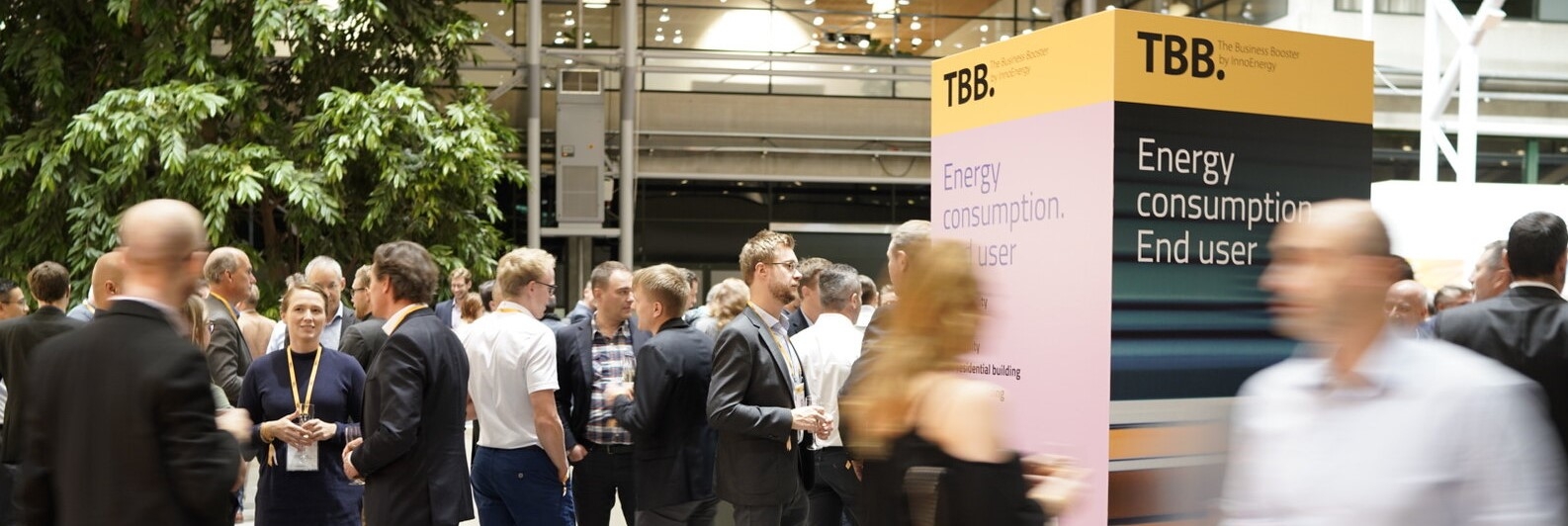EIT InnoEnergy with a consortium of five European companies are finalists of the Helsinki Energy Challenge

EIT InnoEnergy, together with a consortium of five innovative European companies including solar district heating producer Savosolar, and supported assets Heliac, Ecovat, HeatVentors and ConnectPoint, took part in the Helsinki Energy Challenge. This global competition launched by the city of Helsinki aims at identifying new solutions to meet Helsinki’s heating decarbonisation targets by 2030. The team put together an innovative, sustainable and scalable project combining five technological solutions allowing the city of Helsinki to reduce the carbon emissions of its district heating by an impressive 78% by 2030 compared to current levels. This front-running project could serve as an example of sustainable urban heating for other cities worldwide with great CO2 reduction potential.
Helsinki Energy Challenge
In order to find the best solutions for urban heating during decades to come, the City of Helsinki has launched the Helsinki Energy Challenge – a global competition that seeks to answer the question: How can we decarbonise the heating of Helsinki, using as little biomass as possible?
The Helsinki Energy Challenge was open globally to start-ups and other companies, research institutions, universities, individual experts, consortiums or any other actor who can provide sustainable solutions to urban heating. To be eligible, the selected proposals had to significantly contribute to Helsinki’s ability to stop using coal by 2029 and speed up its journey to become carbon-neutral by 2035. EIT InnoEnergy’s entry reached the final stage of the competition and was selected as one of the 10 finalists among 252 applications.
Complementary technologies to decarbonise heating
EIT InnoEnergy created a consortium by bringing five complementary technologies together to develop a systemic and scalable solution based on solar thermal energy and heat storage.
The proposed solution optimally combines solar thermal heat from Savosolar’s flat plate collectors technology and Heliac’s concentrated solar heat technology in multiple scalable solar thermal plants. Each modular plant has the advantage to produce more than a 1000 GWh of renewable energy without emitting any carbon dioxide. Using then Ecovat’s large-scale storage, up to 33% of the total solar thermal heat collected per annum can be stored, allowing the system to operate year-round. Additional decentralised heat storage tanks provided by HeatVentors add day-to-day flexibility to the system and reduce peak demands, achieving an annual cumulative system demand reduction of up to 8.9%. And finally, ConnectPoint’s real-time intelligent district heating platform allows Helsinki’s district heating network to be smartly and remotely managed while stimulating citizen’s engagement using gamification.
“The transition to a 100% renewable, decarbonised energy system is possible – even for cities exposed to cold Nordic climates,”says Sofia Gonçalves, Smart Grid & Energy Storage Project Manager at EIT InnoEnergy Scandinavia who has been leading the participation at the Helsinki Energy Challenge. “Through the ingenuity of six innovative European companies and their complementary technologies, Helsinki will be the first to showcase this with their district heating network. Our solution delivers 1039 GWh of CO2-free, non-hazardous, and environmentally friendly solar thermal energy per year to the citizens of Helsinki, while maintaining existing levels of indoor climate comfort.”
De-risking sustainable urban heating
The solution is designed to be implemented, integrated and financed in a modular and scalable manner. Starting implementation with an entry-level system will allow for rapid deployment, economies of scale and a project management strategy that mitigates any technical, financial, or governance risks.
“The proposed solution is highly sustainable, cost competitive and technically feasible. And importantly, it has a high degree of social acceptance being based on solar thermal heat. Helsinki will be able to significantly decrease its import dependency on fossil fuels and provide a much higher degree of certainty for future operational costs. Through this front-running project, Helsinki will serve as an example of sustainable urban heating for other cities worldwide,” adds Sofia Gonçalves.
The power of collaboration
The solution was designed thanks to a strong collaboration between six different entities based in six countries, bringing together five technological solutions to create an innovative and sustainable heating solution for cities around the globe, not only Helsinki. EIT InnoEnergy’s consortium of partners include:
- Heliac, based in Denmark, that provides utility-scale solar heat at cost below fossil fuels anywhere. Heliac’s panels generate heat using lenses that focus sunlight exactly like magnifying glasses.
- Savosolar, based in Finland, and operating in Denmark, Germany and China, that produces solar district heating and solar heat for industrial processes.
- Ecovat, based in the Netherlands, that provides thermal storage of renewable energy and its integration in a hybrid microgrid.
- HeatVentors, based in Hungary, that commercialises thermal energy storage systems, which saves at least 20-40% energy in Heating and HVAC systems.
- ConnectPoint, based in Poland, that provided IT solutions to utilities, turning data into meaningful information.
“This was such an exciting and learning journey, bringing everyone’s contribution together. We succeeded in building a new solution targeting a major challenge for cities – decarbonising their district heating – by primarily combining existing solutions from our portfolio. Most importantly, we all realised how much further we can go and more innovative we can become by collaborating, rather than acting alone”, concludes Sofia Gonçalves.
Next step
Helsinki Energy Challenge has been a tremendous opportunity, allowing to use the city of Helsinki as a testbed to design decarbonised heating systems. Despite a modern and efficient district heating system compared to many other European cities, Helsinki still has similar challenges regarding the emissions from burning coal. We therefore feel confident that our proposal will be suitable elsewhere. We now plan to pursue our efforts in tackling urban heating decarbonisation challenges and helping cities fighting climate change by offering this combined solution to other cities in Europe, and beyond.
More details on our proposal can be found here.

